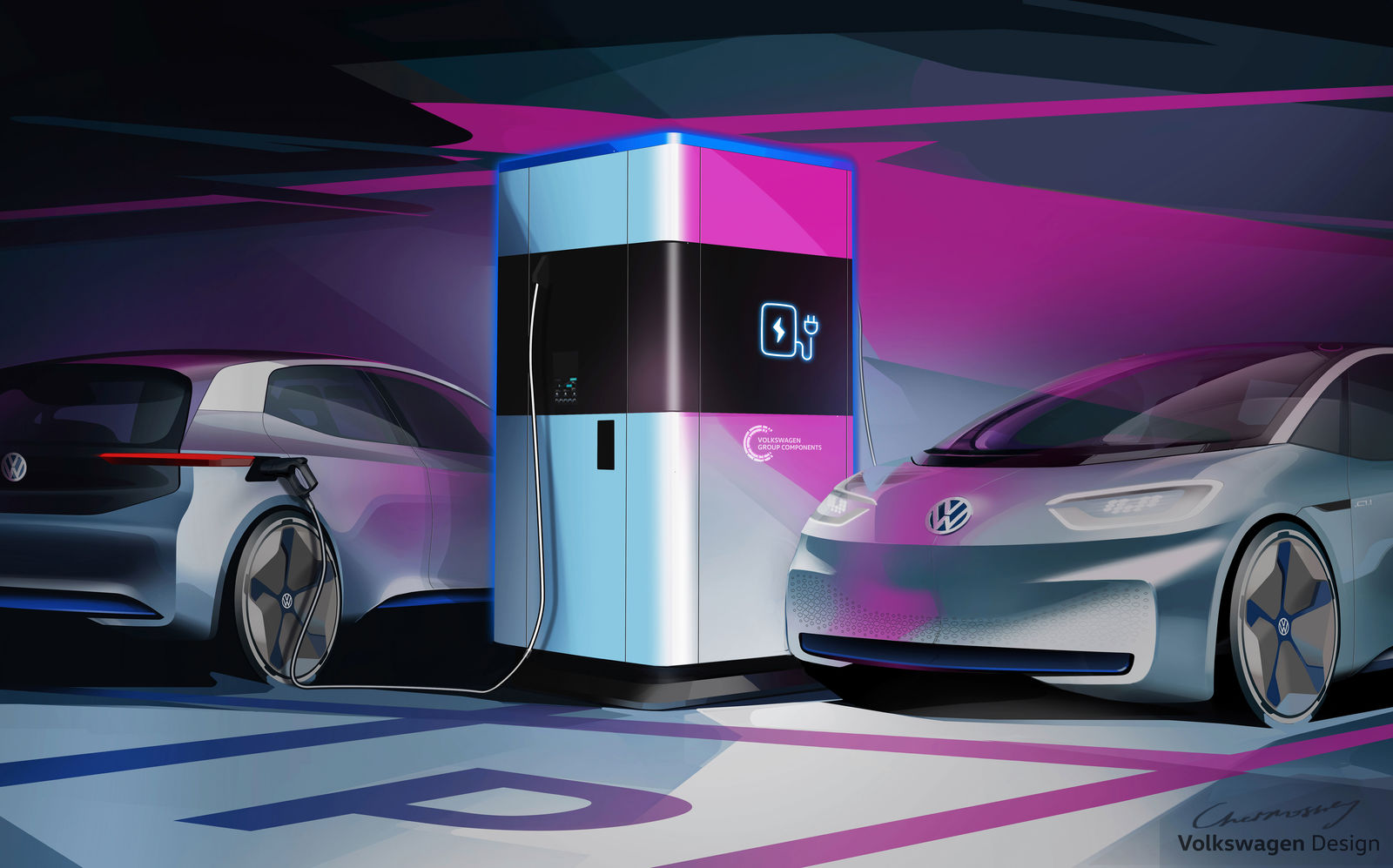The lithium-ion battery is a key element of the e-offensive being rolled out by Volkswagen. The new and independent brand Volkswagen Group Components is taking over end-to-end responsibility for the battery – from building up expertise for cell production through to recycling. At the end of the lifetime of the vehicle, the battery can be reused in second-life concepts – or it becomes a valuable source of raw materials through established recycling procedures.
Second life in a flexible fast charging station
Today, development engineers and production planners at the Centre of Excellence (CoE) located at the Salzgitter component facility are already building up sustainable expertise in battery cells. They are investigating whether their high residual capacities render batteries suitable for second use in new products such as the flexible fast charging station which Group Components will manufacture at the Hannover location from 2020. The engineering of the charging station is based on the battery pack of the Modular Electrification Toolkit (MEB) and it is designed on the basis of its cell modules.
Pilot plant for recycling in Salzgitter
At any rate, after it has come to the end of its life in a car, the lithium-ion battery is a valuable source for reuse of raw materials that are in some cases scarce. For this reason, up to 1200 metric tons of batteries will be recycled at the component location in Salzgitter from 2020. The aim is to return as many valuable materials as possible to circulation. Apart from recovery of aluminium, steel and copper, the focus is on reusable nickel, manganese and cobalt. Established processes are being reviewed for technical and economic scalability. The objective is to reuse 97 percent of all materials when larger volumes of batteries are returned from the market at the end of the 2020s.
